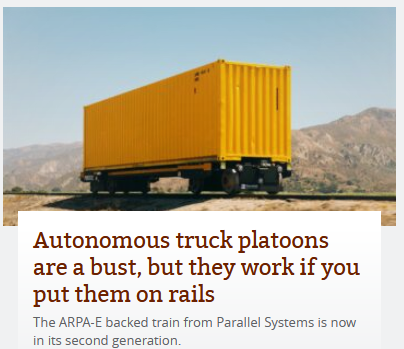Fuck Cars
A place to discuss problems of car centric infrastructure or how it hurts us all. Let's explore the bad world of Cars!
Rules
1. Be Civil
You may not agree on ideas, but please do not be needlessly rude or insulting to other people in this community.
2. No hate speech
Don't discriminate or disparage people on the basis of sex, gender, race, ethnicity, nationality, religion, or sexuality.
3. Don't harass people
Don't follow people you disagree with into multiple threads or into PMs to insult, disparage, or otherwise attack them. And certainly don't doxx any non-public figures.
4. Stay on topic
This community is about cars, their externalities in society, car-dependency, and solutions to these.
5. No reposts
Do not repost content that has already been posted in this community.
Moderator discretion will be used to judge reports with regard to the above rules.
Posting Guidelines
In the absence of a flair system on lemmy yet, let’s try to make it easier to scan through posts by type in here by using tags:
- [meta] for discussions/suggestions about this community itself
- [article] for news articles
- [blog] for any blog-style content
- [video] for video resources
- [academic] for academic studies and sources
- [discussion] for text post questions, rants, and/or discussions
- [meme] for memes
- [image] for any non-meme images
- [misc] for anything that doesn’t fall cleanly into any of the other categories
Recommended communities:
view the rest of the comments

From these comments it seemed like no one actually read what these are for? It actually makes a lot of sense to use existing, underutilized railway to deliver loads that would not require full train setups. This isn’t really a cars/trucks thing and I do blame Arstechnica for writing that shitty headline.
Yes, however, a lot of these rail lines have been needlessly abandoned and replaced with road shipping. Road shipping isn't really cheaper, they just get to put $10 of operational cost on the taxpayer for every $1 they spend. You're basically subsidizing artificially cheap shipping. Rail is the single most efficient means that we have of moving just about anything, but it's not as heavily taxpayer subsidized, and therefor not stonks. The correct answer would be to put those $10 of operational cost back on long and mid haul trucking companies and rebuild our freight rail networks, which, even without switching to electric trains, would significantly reduce emissions, make our roads safer, and drastically reduce long term maintenance costs on our highway infrastructure.
Could you explain this? Is it because taxes pay for roads?
In a word, yes. Subsides to the tune of 100s of billions of dollars a year across the USA.